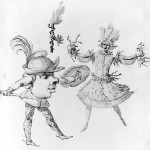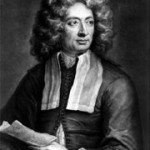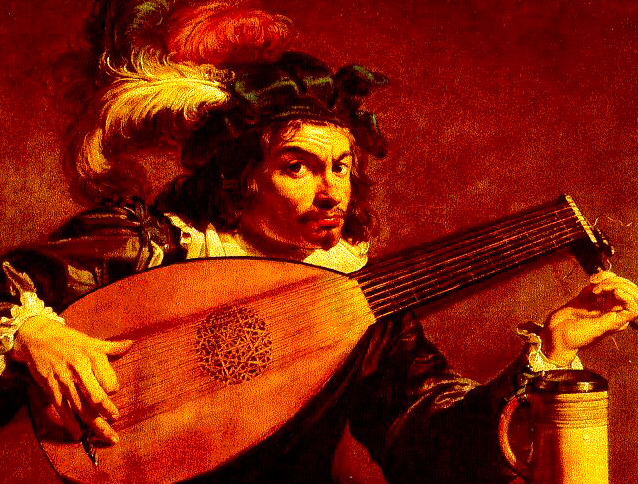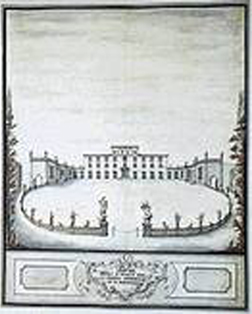
When, in 1673, Marc-Antoine Charpentier became the principal composer to the King’s Troupe (Troupe du Roy), he became involved in the ongoing struggle between the company’s director and chief playwright, Jean-Baptiste Molière, and the composer Jean-Baptiste Lully. Throughout the 1660s, Molière and Lully had worked closely in providing for the king’s entertainment a series of multi-generic experiments that combined theater, ballet, vocal numbers, choruses, and machine effects. But by the spring of 1672 Lully had decided that his own future lay in opera. Having witnessed the successes of Perrin and Cambert with pastoral opera, Lully set about obtaining the royal opera privilege and, thereafter, a series of draconian decrees designed to protect his monopoly and reduce his musical competition.

Monteverdi’s Vespers of 1610 was only the most elaborate of hundreds of collections of music for Vespers published at the turn of the 17th Century. What motivated this remarkable repertoire? Magnificat will perform Monteverdi’s 1610 Vespers on the weekend of April 23-25 and will also participate, along with Artek, AVE, The Marion Verbruggen Trio, Music’s Recreation, Sacabuche!, and Archetti, in a concert celebrating a century of Venetian vespers music from Monteverdi to Vivaldi as part of the Berkeley Early Music Festival and Exhibition on June 13.

Few musicians of the seventeenth century enjoyed the exalted status bestowed on Arcangelo Corelli (February 17, 1653- January 19, 1713). He was called the ‘new Orpheus of Our Times’ and the ‘divine Arc Angelo’, a clever pun on his Christian name and the Italian word for a bow (arco). The Englishman musician and writer Roger North described Corelli’s music as ‘transcendant’, ‘immortal’ and ‘the bread of life’ to musicians. Renowned as a virtuoso performer, an influential composer, and sought-after teacher, Corelli commanded respect and praise throughout Europe at the turn of the 18th century.
The fifth child born to a prosperous family of landowners in Fusignano; Corelli’s first musical study was probably with the local clergy, then in nearby Lugo and Faenza, and finally in Bologna, where he went in 1666. In Bologna he studied with Giovanni Benvenuti and Leonardo Brugnoli, the former representing the disciplined style of the Accademia filarmonica ...

While reveling in the beauty of music from the past, we seldom consider the “office politics” and professional competition that surrounded its composition and original performance. The goal of simultaneously creating beauty and paying rent has always been proven challenging and even among highly respected and gainfully employed artists, competition has frequently led to conflict.
In his biographical sketch of Alessandro Grandi, published previously on this blog, Steven Saunders mentions the composer’s rapid rise to positions of authority at the Basilica of San Marco after returning from Ferrara in 1617. Among the positions that he attained was capo, or head, of the Compagnia di San Marco, a group not unlike a modern musicians’ union that organized singers for “freelance work” outside the basilica.
Already in the 15th Century, musical activity outside the Basilica had been organized through confraternities known as Scuole Grandi. In his seminal article on organizations of musicians in Venice, ...

A very 2009 moment occurred the other day when, allowing myself to be distracted from working on the score for La Liberazione di Ruggiero, I noticed a tweet from @krashangel about the fact that the ciaconna used in Rene Jacobs’ recording and DVD of Cavalli’s La Calisto was actually not by Cavalli, but rather by Tarquinio Merula. Before I had a chance to marvel at the fact that Tarquinio Merula had actually been mentioned in Twitterspace, there was a follow up tweet observing, accurately, that "it was the custom to use ritornelli and sinfonie composed by others as a contingent ‘filler’ in Venetian operas in the 17th century".
What made this tweeting encounter remarkable was that at that very moment (or at least before being distracted) I was in the process of doing just that: inserting incidental music into an opera score (albeit a Florentine opera) to allow for scene changes, ...

(This is the second of a three part essay on Francesca Caccini and La Liberzione di Ruggiero, which Magnificat will perform October 16-18. The first part, a biographical sketch of Francesca, "About Francesca", was posted here earlier.)
On February 3, 1625, sometime in daylight, 160 gentildonne and their husbands, and an unknown number of foreign guests rode in carriages out the southeastern gate of Florence, and half a mile up a tree-lined avenue to a villa atop the nearest hill that had very recently been renovated as the personal palace of Tuscany’s regent, Archduchess Maria Maddalena d’Austria. Leaving their carriages in a grassy courtyard guarded by two squadrons of armed cavalry, the Archduchess’ guests were welcomed into the palace by a military commander, and led to bench seats in a temporary theatre built in the villa’s loggia, to hear a new commedia in musica based on a well-known plot (two sorceresses ...

Isabella Leonarda
Sonata duodecima (1693)
Magnificat
Rob Diggins, violin
Warren Stewart, violoncello
David Tayler, theorbo
Hanneke van Proosdij, organ
live, unedited performance
February 2, 2003
St. Gregory Nyssen Church
San Francisco CA
Download this Track
In 1724, the eminent theorist and collector music Sébastian de Brossard wrote in praise of the works of Isabella Leonarda that “all of the works of this illustrious and incomparable composer are so beautiful, so gracious, so brilliant and at the same time so knowledgeable and so wise, that my great regret is in not having them all.”
Isabella’s instrumental works, which appeared in 1693, are apparently the earliest published sonatas by a woman. The collection consists of eleven trio sonatas and one sonata for solo violin and continuo. One of her most harmonically adventurous works, the Sonata duodecima is in seven parts, including two recitative like sections.
Listen to More Music by Magnificat

August 20 is the birthday of Jacopo Peri, who was closely involved in the development of what we now call "opera", staged drama set entirely to music. He was known affectionately as "Zazzerino" (from zazzera, mop of hair) in recognition of his striking, and long, blond hair - a sort of 16th century Robert Plant.
Though born in Rome in 1561, Peri is most closely associated with Florence, where he served along with Giulio and Francesca Caccini, Jacopo Corsi, Marco da Gagliano and many other in the extraordinary musical establishment of the Medici court. He has also been associated with the Florentine Camerata of Giovanni de' Bardi and throughout his career was a leading voice (in all senses) for the "new music" that the Camerata was promoted.
The style promoted by the Camerata was perceived as a re-discovery of the music of Classical Greece, though there is little to suggest that the ...

Claudio Monteverdi wrote in a letter in the 1630s that the goal of music was "to speak through singing”. In spending much of my life researching, promoting, and performing the "new music" of the 17th century with Magnificat, I have observed that this music is indeed characterized by an underlying, urgent impulse to "speak" the human experience through music. It is precisely the intensity of that impulse that continues to draw me and the musicians of Magnificat to music of this fascinating, unsettled, and dynamic period. [1]
The 17th century was a period of pervasive upheaval, a century when the fundamental perceptions of the world in all realms of life were shaken. It was a time when alchemy and empirical science coexisted, a time when the exploration of new worlds and the investigation of the sky challenged traditional conceptions of the place of the earth in the universe, a time of religious ...
I have just received my copy of Suzanne Cusick's very impressive monograph "Francesca Caccini at the Medici Court: Music and the Circulation of Power". Quite apart from it's relevance to Magnificat's production of Caccini's opera La Liberazione di Ruggiero next Fall, the book promises to offer fascinating insights into the role of music in Italian society and the experience of a woman navigating the politics of a North Italian court.

Georg Muffat was born on June 1 in 1653. A special day for Jubilate personnel manager, Magnificat violinist, Muffat expert and all around great guy David Wilson, who, in 2001, published a translation of texts from Florilegium Primum, Florilegium Secundum, and Auserlesene Instrumentalmusik together with very enlightening commentary on performance practice issues.
Born in Savoy, Muffat studied with Lully in Paris in the 1660s and then studied law at Ingolstadt. According to the biographical blurb at Goldberg Magazine, he later traveled to Vienna but could not obtain an official appointment and subsequently appeared in Prague (1677), ultimately finding a position in Salzburg in the service of Archbishop Max Gandolf, a post he held for over ten years.He was given leave to travel in the 1680s and studied in Rome with Pasquini ; some of his compositions were performed in Corelli 's house. From 1690 until his death he was Kapellmeister to ...

"This slight work consists of only three pieces... anyone liking this work of mine may find that it can be used to good effect as a substitute for a German Missa, and possibly for the Feast of the Purification..."
Thus did Heinrich Schütz hope to give the three pieces he composed for the funeral of Prince Heinrich Reuss Posthumus a life beyond their specific commission. Magnificat's intention in our program is to realize Schütz's suggestion, and incorporate the three pieces known collectively as the Musikalische Exequien, along with music by Schütz’s musical colleagues, into a Lutheran Mass for the Feast of the Purification, following the liturgical practice of the Dresden Court Chapel of the mid-1630s.
Shortly after the death of the prince in December 1635, Schütz received a commission from the widow to set the nearly two dozen scriptural verses and chorale strophes that the prince had ordered engraved on the copper ...

Giovanni Antonio Rigatti is a name that until recent times was virtually unknown to music history. Living in Venice in the first half of the 17th-century, he has been overshadowed by his famous contemporaries, the chapel masters and vice chapel masters of St. Mark’s Basilica in Venice: Claudio Monteverdi, Alessandro Grandi, Giovanni Rovetta and Francesco Cavalli. Thanks to the research and publications of an international coterie of scholars, Jerome Roche (England), Linda Maria Koldau (Germany), Metoda Kokole (Slovenia) and Gianluca Viglizzo (Italy), both the biography and music of this fascinating composer of the mid-17th century are at long last coming to light. I am especially grateful to Gianluca Viglizzo for sharing with me his as-yet-unpublished article on Rigatti containing new biographical data. Much of the information below is derived from this article and an earlier one by the late Jerome Roche.
Baptized on October 15, 1613 in ...

“Monday or Tuesday, I will put on stage the third opera, also mine, which is for amusement, because it is a comic opera, but most beautiful, and it is called Il Trespolo; and because here they delight in comic things, I believe it will be an infallible hit.”
So Alessandro Stradella described his opera Il Tespolo Tutore in a letter to one of his patrons in 1679 before performances at the Teatro Falcone in Genoa. Featuring the bumbling character Trespolo from the popular stories of Ricciardi, Stradella’s opera is indeed “ridicola” bordering on slapstick and replete with vulgar language, cross dressing, and sexual innuendo - as popular in the early days of comic opera as today.
The main character, and the butt of endless jokes, is the foolish tutor Trespolo, a character modelled on the commedia figure of Il Dottore. “Trespolo” is not a real name – it’s rough meaning is “tripod” ...
The following Synopsis was prepared by Dr. Michael Burden of New College Oxford and is reposted here with permission of the author.
The story centres on Signor Trespolo's attempts to find a husband for his ward, Artemisia; if she is satisfied, then they will both inherit money under her father's will.
At the beginning of Act I, Simona is trying to get Despina to agree to a marriage with Trespolo, saying that a husband is like medicine, but Despina says that Trespolo is like a hairy bear, and has no brain. Simona welcomes Nino, who has been away, business unspecified. He inquires the reason for the argument, and, when told that Despina does not want to get married, says that that is only natural, since she is young. Nino then mentions his brother Ciro, who has been driven crazy by love. He sends Simona away with the comment that he will find ...

by Samuel Dwinell
January of 1679 saw the premiere of Alessandro Stradella's Il Trespolo tutore in the Teatro Falcone in Genoa, a city well suited to the plot of this opera; as Stradella himself noted, the Genoese had a penchant for 'comic things'. By the time he wrote Trespolo, the recent genre of Italian comic opera was becoming well established, and Stradella had already written comic prologues and intermezzos for the Teatro Tordinona. However, with this opera, Stradella invented the operatic buffo bass (something which would become a defining characteristic of later comic opera), and placed him in the title role as Trespolo, the foolish guardian.
The libretto is Giovanni Cosimo Villifranchi's reworking of a popular comic play by Giovanni Battista Ricciardi. With just the same emphasis on intrigue, misunderstandings, and farce as Villifranchi's adaptation, Ricciardi's play contains a light comedy, often bordering on slap-stick in a language which resembles the everyday, ...

H. Wiley Hitchcock was instrumental in the "re-discovery" of Marc-Antoine Charpentier in the 20th Century. We are indebted to the seminal research he undertook to resurrect this almost forgotten master, whose music has delighted and moved audiences and who has now assumed a rightful place as one of the greatest composers in the history of music. His obituary was released today by Conservatory of Music of Brooklyn College (CUNY).
The Conservatory of Music of Brooklyn College (CUNY) deeply regrets to announce that Distinguished Professor emeritus H. Wiley Hitchcock, 84, passed away in the early morning of December 5, 2007, after a lengthy illness. He was born September 28, 1923, in Detroit, MI. After attending Dartmouth (A.B., 1944) and University of Michigan (M.M. 1948, Ph.D. 1954) – studying in 1949 at the Conservatoire Américain (under Nadia Boulanger) – and after teaching at the University of Michigan, N.Y.U., and Hunter ...

The pastoral tradition in music has had a long and distinguished history dating back to ancient times. The transfer of music styles associated with pastoral themes to settings of Christmas texts was quite natural. Not only the bucolic setting of the Angel’s announcement of the birth of Christ in Bethlehem, but more generally the image of Christ as the good shepherd.
Composers of the 17th century developed a vocabulary of instrumental motifs associated with music depicted the Christmas story, with reference from Castaldo as early as 1616. Similar pastoral topoi in settings of Christmas texts can be seen around the same time or earlier in German sacred songs and the Spannish villancico. Castaldo was one of several writers who claimed that the custom a associating pastoral literary traditions with Christmas originated with St. Cajetan of Thiene after a vision he had on Christmas Eve in 1517. The ...

Few musicians of the seventeenth century enjoyed the exalted status bestowed on Arcangelo Corelli (1653-1713). He was called the ‘new Orpheus of Our Times’ and the ‘divine Arc Angelo’, a clever pun on his Christian name and the Italian word for a bow (arco). The Englishman musician and writer Roger North described Corelli’s music as ‘transcendant’, ‘immortal’ and ‘the bread of life’ to musicians. Renowned as a virtuoso performer, an influential composer, and sought-after teacher, Corelli commanded respect and praise throughout Europe at the turn of the 18th century.
The fifth child born to a prosperous family of landowners in Fusignano; Corelli’s first musical study was probably with the local clergy, then in nearby Lugo and Faenza, and finally in Bologna, where he went in 1666. In Bologna he studied with Giovanni Benvenuti and Leonardo Brugnoli, the former representing the disciplined style of the Accademia filarmonica (to which Corelli was admitted ...

Alessandro Scarlatti was born into poverty in famine-stricken Sicily in 1660 and it has been suggested that his humble origins made his a compulsive worker and contributed to his prolific and varied output. While his reputation as the founder of the Neapolitan school of 18th century opera may be somewhat over-stated, his works in the genre are highly skilled and original, and marked by innovations in orchestration, strong dramatic characterization and, above all, an unfailing melodic sense.
It is in the genre of works for voice and instruments, like those featured in Magnificat’s December concerts, that Scarlatti’s most perfectly realized and imaginative music is to be found, as he excelled in the art of the soliloquy, in detailed imagery, and in dialogue between voice and instruments. These works represent the most refined and intellectual type of chamber music at the turn of the 18th century and it is unfortunate that most ...

















